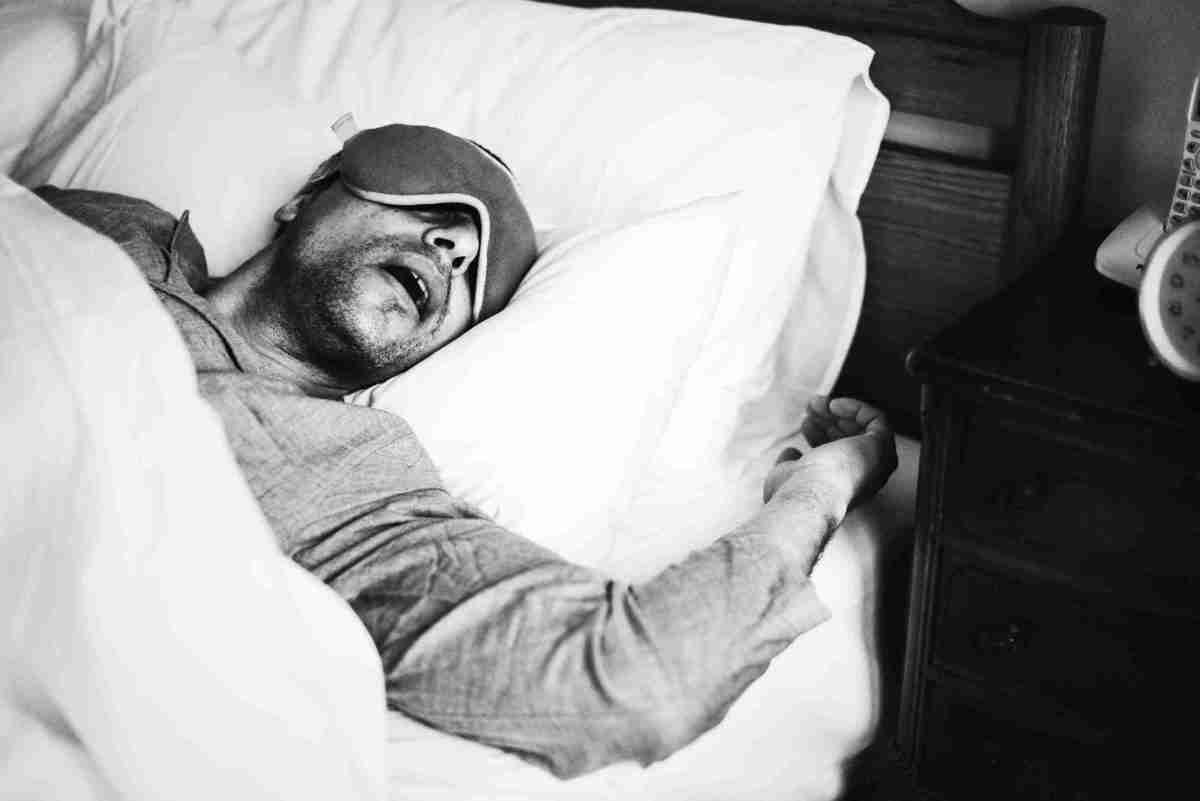
If you’re a veteran suffering from service connected sleep apnea, you know how disruptive and debilitating it can be. It can impact your ability to work, enjoy leisure activities, and even get a good night’s rest. However, VA benefits can provide much-needed support to help manage your condition.
This article will explore the top four reasons why your sleep apnea VA claim may be denied. We will provide practical advice on avoiding these pitfalls and increasing your chances of receiving the benefits you deserve.
What Is Sleep Apnea?
To begin with, let’s understand the condition better and help you obtain your rightful benefits.
Obstructive sleep apnea (OSA) is a disorder that affects millions of Americans. During sleep, breathing is repeatedly interrupted, causing temporary lapses in breathing and can occur several times per night. OSA occurs when the upper airway becomes repeatedly blocked during sleep, leading to poor airflow. This blockage is due to overly relaxed muscles in the back of the throat.
Some common sleep apnea symptoms include disrupted breathing, excessive daytime sleepiness, morning headaches, irritability, limited attention span or difficulty thinking clearly, snoring, sore throat, or dry mouth.
If untreated, sleep apnea can lead to serious health consequences such as cardiovascular diseases, diabetes, depression, and headaches. Veterans are particularly vulnerable to this disorder as it is frequently caused or exacerbated by time in service. If you’re experiencing any of the symptoms it’s essential to seek a diagnosis and pursue compensation for this disability. Even if you’ve been denied before, seeking help is never too late.
Reasons Service Connected Sleep Apnea Claims Are Refused
Many claim denials can be avoided by following a few simple guidelines. What follows are the top four reasons your claim for disability benefits for service connected sleep apnea can be refused.
1. Lack of Medical Evidence
Without a doubt, the most common reason for sleep apnea VA rating denials is a lack of medical evidence. Unfortunately, many veterans make the mistake of submitting insufficient medical evidence, leading to a denial of their claim.
When submitting medical evidence, it’s essential to ensure that it is complete and accurate. This includes all relevant medical records, test results, and physician statements. It’s also crucial to have evidence that establishes the onset of symptoms during military service. It can be challenging, as symptoms often develop over time and may not be immediately apparent.
One way to ensure that you have sufficient medical evidence is to work with a qualified VA accredited organizations like VetsForever. They can help you gather and organize your medical records. They can provide guidance on the evidence that most effectively supports your claim.
One of the most important documents a veteran can provide to the VA is a well-crafted statement support of claim. This establishes a connection between the service-connected disability and the current disability.
The statement support of claim is a critical requirement to prove, for example, a sleep apnea secondary to PTSD. It can significantly influence the medical opinion of the C&P examiner and the VA rating official.
2. Lack of Proper (Current) Diagnosis
Next, a big challenge when filing for disability benefits for service connected sleep apnea is providing the VA with medical confirmation, specifically a diagnosis confirming your diagnosis. If a professional diagnosis has not been made, the VA will likely deny the claim due to insufficient medical evidence.
The VA requires a confirmed diagnosis to establish that a Veteran genuinely suffers from the condition. The VA may not be able to establish a direct service connection.
While some Veterans may use excessive snoring to prove their condition, this symptom alone does not provide sufficient evidence. Snoring is a very common symptom but does not necessarily confirm a diagnosis.
A medical opinion and a sleep study are necessary to establish a link between symptoms, diagnosis, and military service.
3. Inadequate Documentation of Symptoms
Sleep apnea symptoms can vary widely from person to person.It’s crucial to document them accurately when submitting a VA claim. Unfortunately, many veterans make the mistake of providing insufficient documentation of their symptoms, leading to a denial of their claim.
When documenting symptoms, provide specific and detailed information. Instead of saying “trouble sleeping,” describes disturbances like snoring or waking frequently. Also, include the severity, frequency, and how it affects daily activities.
Example of a vet being denied due to no in-service complaints:
In a May 2007 claim, a VA examiner concluded that it was unlikely that the veteran’s diagnosis had its onset during service. The examiner’s rationale was based on a thorough review of the veteran’s claims file and physical examination. It revealed no complaints of sleep apnea symptoms during or after service.
The examiner’s opinion holds greater weight over other medical opinions based on factors such as reasoning and review of prior clinical records. Therefore, the Board determined that the preponderance of the evidence did not support the veteran’s claim that the sleep apnea was service connected, and the claim was consequently denied.
4. Failure to Meet Service Connection Requirements
A common reason for having a sleep apnea VA claim denied is a failure to meet service connection requirements. To receive VA benefits, veterans must establish a connection between their symptoms and their military service. This connection, also known as a “nexus,” can be challenging to prove. Particularly for this disability because it may not manifest itself until years after military service.
One way to establish a nexus is to provide evidence of an in–service event that contributed to the development of sleep apnea. For example, if a veteran was exposed to chemicals or fumes during their service, this exposure could be linked to a current diagnosis. Similarly, if a veteran suffered a traumatic injury during their service, this injury could be related to the development of symptoms.
It’s important to note that establishing a nexus requires more than a mere temporal relationship between military service and symptoms. There must be a verifiable link between the two, which can be challenging to demonstrate without the help of a VA accredited law group like VetsForever.
Pitfalls of Recent Rules Change
If you have gone through the VA disability process, you may have noticed that decisions seem to vary depending on the personnel involved. The process can be slow and error-prone. However, the VA has a set of written policies called the M21-1MR Adjudication Procedures Manual. It guides VA personnel in making decisions for every type of VA claim.
The M21-1MR proposes two changes in the adjudication of service connected sleep apnea disability claims. This will make it easier for the VA to deny a VA sleep apnea claim at the 50% disability rating level. The diagnostic criteria for a 50% rating will not change with the continuous airway pressure (CPAP) machine requirement. VA will stress the emphasis on now what is meant as “required.”
The updated language in the M21-1MR states that the key consideration when determining if the 50% criteria are met is whether a qualifying breathing assistance device is necessary due to the severity of the disability. Furthermore, the manual clarifies that a medical professional must deem the device necessary, meaning that a prescription alone may not be enough evidence for a 50% rating.
What This Means
This change in emphasis is a warning and a clue that VA personnel no longer assume that a prescription for a CPAP machine means that it is medically necessary for treatment. As a result, more evidence may be required to support a disability claim.
Unfortunately, the increased scrutiny by the VA can become a pitfall for uninformed veterans. Without a medical statement from a doctor confirming the necessity of a CPAP or other breathing assistance device, the VA may use it as a reason to deny the claim.
To avoid this situation, obtaining a prescription for the recommended device and having the doctor provide written confirmation of its medical necessity for treatment. Although some doctors may be surprised by such a request, they should know the VA’s policies and the importance of providing adequate documentation for disability claims.
Summary
There are several common reasons why your claim may be denied, including a lack of medical evidence, failure to meet service connection requirements, inadequate documentation of symptoms, and failure to follow treatment plans. However, by addressing these issues, veterans can improve their chances of receiving the necessary VA benefits.
If you need help navigating the VA claims process, seeking assistance from a VA accredited law group like VetsForever and Veterans Service Officer (VSO) is essential.
FAQs
Is sleep apnea a service-connected disability?
Yes, sleep apnea can be a service-connected disability if it is related to or aggravated by military service.
What is the service connection rating for sleep apnea?
The service connection rating for sleep apnea varies depending on the severity of the condition, ranging from 0% to 100%.
Why was my sleep apnea claim denied?
Sleep apnea claims are often denied if there is no medical evidence to establish a direct or secondary service connection. An example would be to sleep apnea secondary to tinnitus. Additionally, the claim may be rejected if the VA does not deem the condition related to military service.
Is sleep apnea hard to prove for VA disability?
Proving sleep apnea for VA disability can be challenging because a diagnosis and medical evidence are necessary to establish a service connection. However, with proper documentation and medical support, it is possible to claim disability benefits successfully.
How is sleep apnea service connected?
You can connect sleep apnea to military services by demonstrating that events or trauma experienced during your service triggered symptoms that persist until the present.

